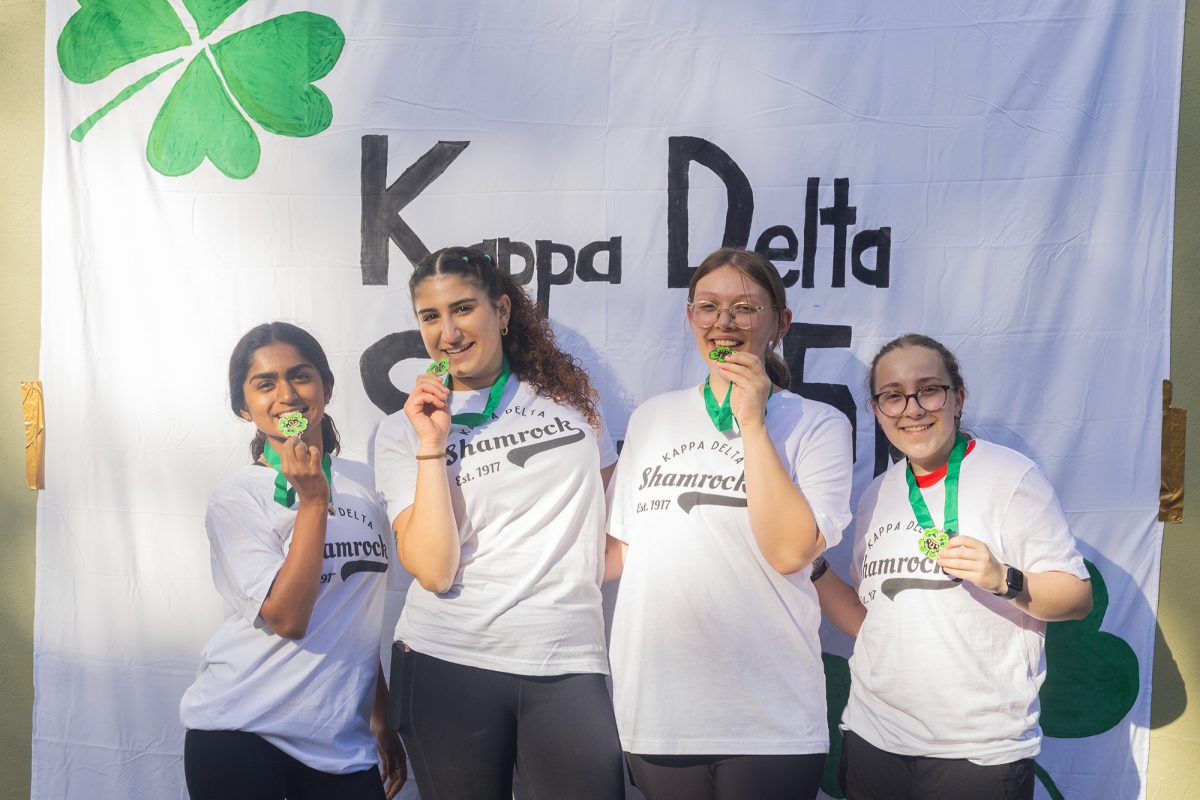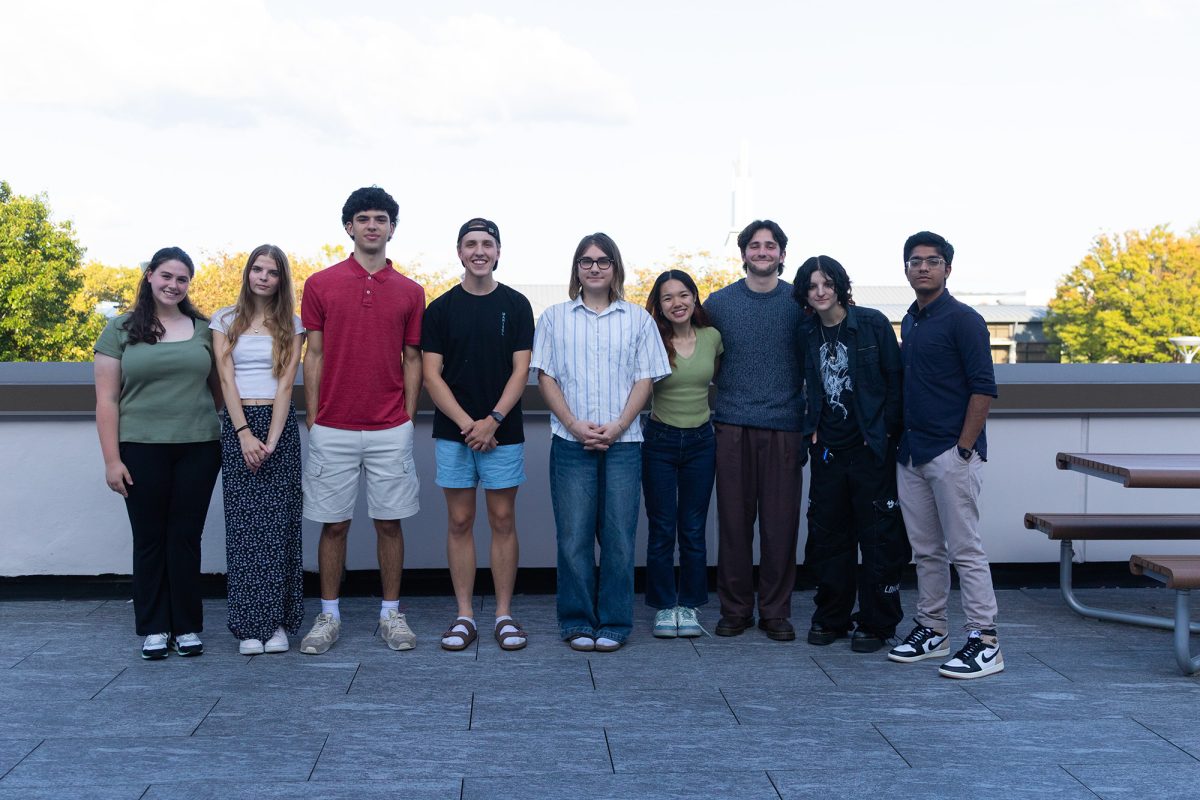While Cornell University supports over 50 fraternities and sororities on campus, Ithaca College has no affiliated groups, leaving students to form independent groups that pursue the same goals of philanthropy and community building.
Across the country, about 750,000 students are involved in Greek life, with a further nine million involved with alumni networks. The only Greek life organizations open to IC students are unaffiliated with the college and do not have headquarters on campus because of a decision in 1980 that disallowed their presence on campus in the wake of student safety concerns.
These include sororities such as Gamma Delta Pi, a locally affiliated social service sorority, and Zeta Phi Beta, a member of the National Pan-Hellenic Council, which is open to both IC and Cornell students.
Despite being unaffiliated with IC, both groups still carry a heavy emphasis on service and supporting one’s community. Zeta Phi Beta is a historically Black sorority that works primarily with its own National Educational Foundation and the March of Dimes, in addition to promoting educational achievement and sisterhood among its members. Another sorority, Gamma Delta Pi, founded in the City of Ithaca in 1965, works with a large variety of causes, including the Society for the Prevention of Cruelty to Animals March for the Animals and BomberTHON.
IC senior Funmi Omotosho, secretary of Zeta Phi Beta’s Xi Phi chapter, said the service aspect was one of the main reasons that she wanted to join Zeta Phi Beta. The Xi Phi chapter works with a variety of local organizations and hosts an annual baby shower drive in collaboration with the March of Dimes.
“When we have community service events that are open to other students … or other chapters … it helps raise awareness, especially when people often leave knowing things that they didn’t learn before,” Omotosho said.
For many sororities, like those at Cornell, the semester’s community service is well underway. On Sep. 20, participants gathered at the Kappa Delta house on Cornell’s campus for the “ShamROCKing Into School” 5K, in support of Prevent Child Abuse America. Open to students and the larger Ithaca community, the race was sponsored by several local businesses and raised over $4,000 for PCAA, one of two main organizations that Kappa Delta partners with for their philanthropy.
This philanthropic aspect is standard among the sororities of the National Panhellenic Conference, where each of the 26 member organizations has one or two main causes that guide their community service.
The work of Cornell sophomores Andreana Frangos, vice president of events and programming for Cornell Kappa Delta and her co-director of philanthropy, Tina Chen, paid off. The team was able to stay under budget this year, ensuring the maximum amount of proceeds can go towards the New York PCAA chapter and Kappa Delta’s national foundation.
“Social impact really means a lot to me,” Chen said. “I think being director of philanthropy really opened up my eyes behind the logistics part of fundraisers and whatnot, because it’s just a lot of work.”
While Greek life groups on the IC campus may be small, IC senior Hanna Pitts, president of Gamma Delta Pi, said that being a smaller group has allowed the sorority to get more hands-on in its service, both on campus and in the local area.
“Not being nationally affiliated has allowed us to diversify what we do,” Pitts said. “Being able to look at different causes throughout the year is really important because it allows our sisters to dip their toes in a lot of different service events and stuff like that. We don’t have to just stick to one thing all year.”
While Gamma Delta Pi is one of the two main active sororities IC students engage with, it is also one of the many groups open to IC students that are focused on community service. There are 38 clubs listed on IC Engage as community-service organizations, each with its own goals and focus, such as raising guide dogs or supporting small businesses.
Many groups like Gamma Delta Pi focus on providing needed support for a variety of causes. Its most recent programming was an event for the Ithaca Children’s Garden, which allowed members to engage with the local community and get more familiar with the region and the needs of the people within it.
Though sororities face stereotypes in the larger popular culture, sorority members hope that the philanthropy and outreach aspect of so many groups can help to combat that. Chen said she is proud to break those stereotypes through her involvement.
“It really opened up my eyes on how open and how nice girls could be,” Chen said. “We still have a stereotype associated with every single house on campus at Cornell. I tell people that I’m in a sorority, and they’re like ‘You are?’, because they just don’t expect it from me. I’m kind of proud that I’m breaking stereotypes.”
Most sororities have alumni networks that encourage sisterhood and service beyond a member’s college graduation. Despite a lack of Greek life, IC students are still making an effort to find that community for themselves.
“Even past college, like for organizations, especially Zeta Phi Beta, and other … Panhellenic Council organizations, you are a member for life,” Omotosho said. “I really think that’s an important value for everyone to hold, and everyone who wants these things themselves, to want to rise above and get better.”








